A Shipmate Who Had the Right Stuff
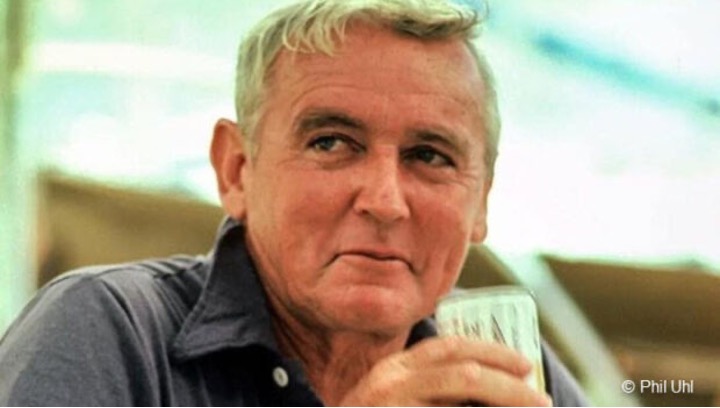
Peter Bowker for nearly 40 years raced offshore virtually non-stop all over the world in most of the world’s premier offshore sailboat races, usually on the best boats in the fleet. He was the best shipmate anyone could ever hope to have, and he set an example for generations of sailors who knew him.
As the story goes, in in 1959 Peter Bowker was a ticket agent for a major airline and one day the customers got irate, and he walked away from his post, then helped a friend sail from England to Ft Lauderdale, and never went back. No one quite knew how the Brit was able to devote the rest of his life to sailing offshore, but it was whispered that he was a “remittance man.” He always paid his own way travelling around the world, and was highly esteemed by his shipmates.
Aboard, he usually was the navigator, and helmsman when things got rough, often becoming the substitute cook, when others were too sick to scramble some eggs. All done with equanimity no matter what the situation.
Esteemed yachtsman Peter Bowker died at his home in Fort Lauderdale, FL in the morning of February 24, 2023. Born in England in 1927, Peter moved to Florida in the late 1950s and made it a base for his extensive travels. He married Josephine in 1988.
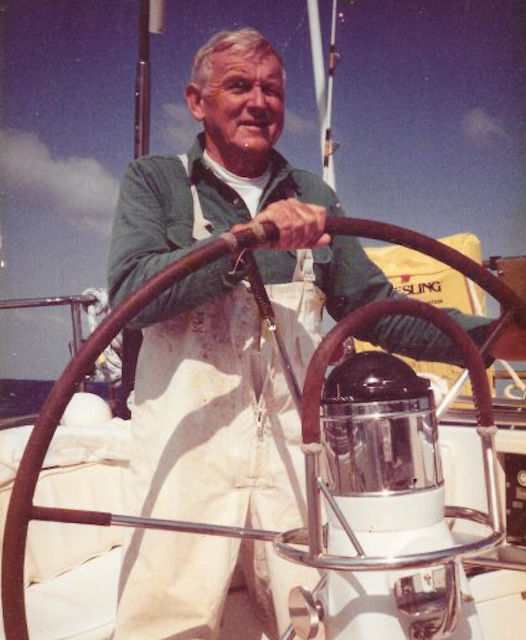
Well known world-wide as a navigator on the yacht racing circuit, Peter is remembered for his calmness under pressure. He was very well respected by all who sailed with him – an easy going, nice bloke with a funny laugh. If one was to walk the docks or stand at a yacht club bar or nearby pub at any of the global IOR regattas during the heyday of offshore racing before the advent of foils and catamarans.
Peter could be found in places as far afield as Newport, Fort Lauderdale, Nassau, Bermuda, Cowes, Hawaii, Malta, Sardinia, San Francisco, Hong Kong, Sydney, Hobart, Auckland, and Rio De Janeiro.
Racing and Flying Around the World
He was equally at home discussing tactics with wealthy boat owners as he was mentoring the constant throng of young Aussies, Kiwis, fellow Englishmen, South Africans and Americans – the young guns who ground the winches, set and trimmed the sails, while Pete put the boat spot on the next mark, regardless of clear or cloudy weather when sun sights were unavailable.
He is the first navigator to win the big three of the early 600+ miler regattas: American Eagle – Sydney/ Hobart 1972; Scaramouche – Bermuda Race 1974; and the brutal Fastnet Race 1979 – Tenacious. He even has the plaque to prove it.
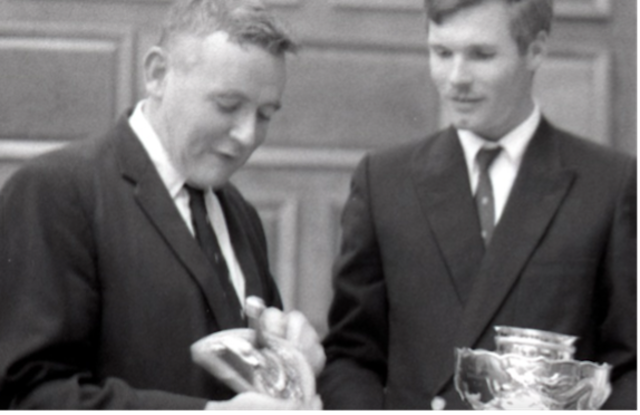
Peter was on demand on the top boats over the years, such as Ticonderoga, Brigadoon, Escapade, Jubilation, Guinevere, Windward Passage, American Eagle, Scaramouche, Tenacious, Mistress Quickly, Bumblebee 4, Nirvana, Formidable and others. Easy going, a friend to all, ready with a joke at a “Quiet Little Drink.” Peter was also a great sea cook. No problem feeding the boys in 35 knots with the galley at an angle of 45 degrees.
His mother asked him once what he would do when he grew up? His answer “That`s a difficult question mum.” Truth is, he lived a “Peter Pan” life where he never had to really grow up. He will be remembered as an exemplary shipmate, outstanding seaman and a fun and witty friend who always surprised you with particularly pertinent quips.
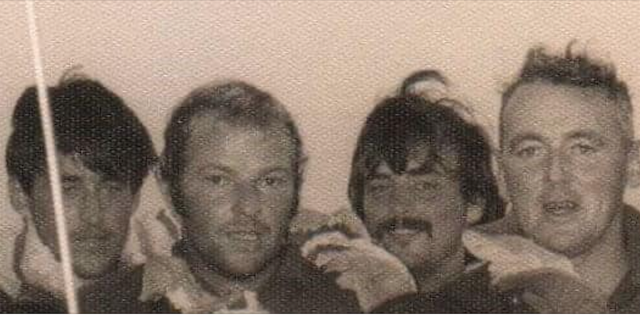
Peter’s Early Days
Born in Manchester, England, Bowker served in His Majesty's Navy at the end of World War II. Ironically, he never went overseas in uniform, assigned instead to duty on land at a naval air station.
Since then Bowker has seldom been bottled up in port for long. He has sailed across the Atlantic Ocean 16 or 17 times and made the long voyage to Australia and back.
"I like long trips. You get away from everything and after a couple of days you get into a good routine. It's also a good way to catch up on your reading," he said. "It's great as long as you pick the right time of year with consistent weather patterns.
"As far as racing, I'd rather just go round-the-buoys. I prefer long trips to be cruising ventures."
Bowker refined his navigational skills during those long journeys, but it isn't a task he particularly relishes on the race course. It requires too much time huddled below deck trying to translate digital readouts to points on soggy charts, when he would rather be up with the sun and wind on his face.
"I'd rather be sailing the boat. There isn't as much challenge anymore in navigating with all the sophisticated electronics to tell you exactly where you are," he said. "You tend to drift into navigating to get off the winches and the foredeck. Once you get a little gray in your hair, it means you can go below and have a look at the charts when the weather gets bad."
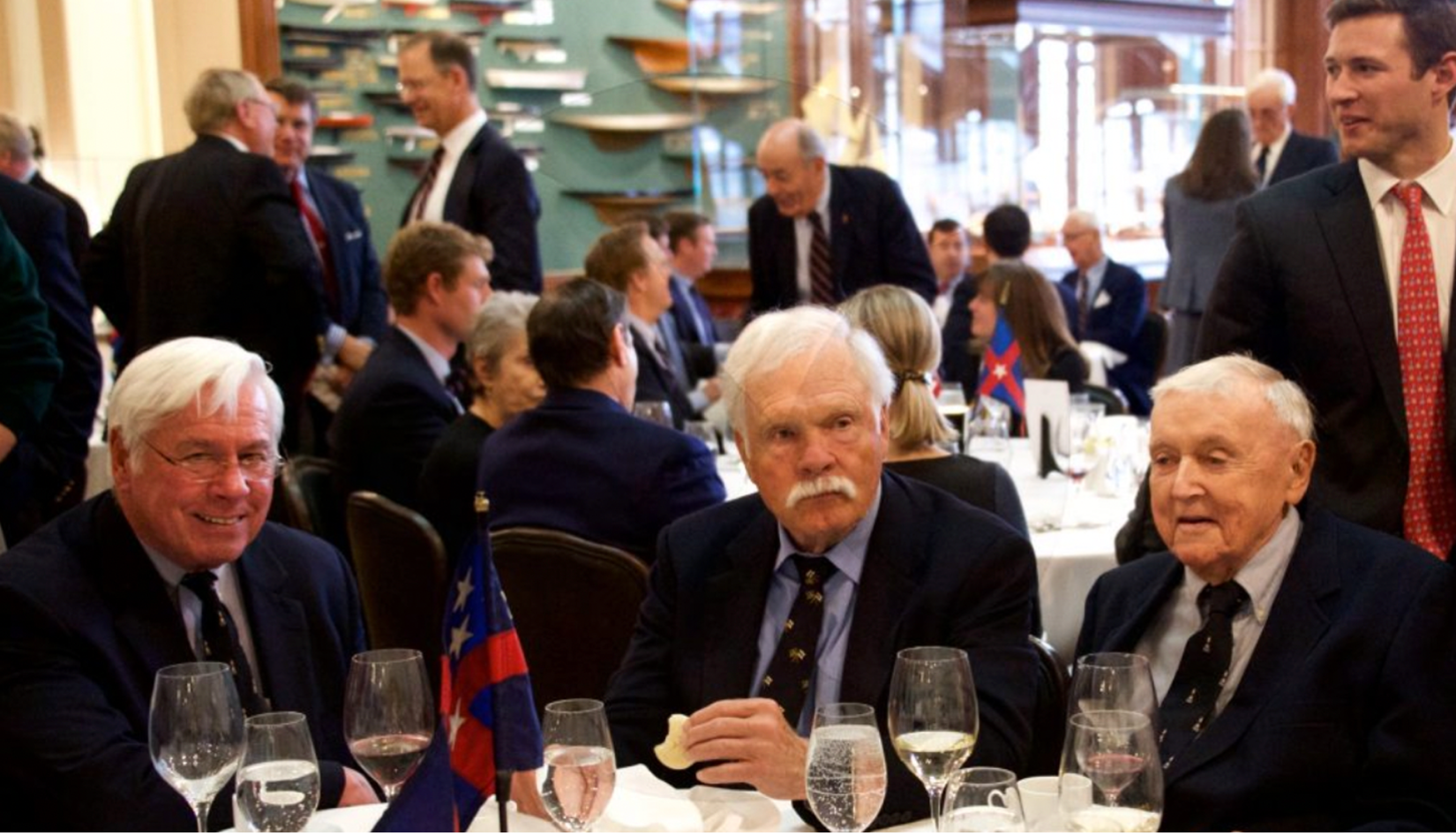
1979 Fastnet Race
That is not to say that a navigator's existence is without peril. The Force 11 storm that claimed 21 sailors in the 1979 Fastnet Race off England came close to adding Bowker to the list of victims.
Navigating for Ted Turner on Tenacious, Bowker came on deck during the storm to take a reading with the radio direction finder. He was standing in the cockpit tinkering with the equipment when a rogue wave surged over the side. It flung him into the steering wheel, bending the wheel, and deposited him on the leeward rail underneath the helmsman.
"It was a terrifying moment. I was convinced I was going over the side," he recalled.
Bowker got up still clutching the compass part of the RDF, but the radio unit was gone, leaving him holding two dangling wires. However, he improvised the rest of the way and Tenacious won the race.
"It was tough going, but the bigger boats were fortunate. We were on our way back when the storm hit and the wind was veering and freeing us. The smaller boats had a tougher time of it. That's why I like to do the Fastnet in a big boat," he said.
Peter is survived by his wife Josephine and his two nephews, David and Stephen, in England. He will be sorely missed by all who sailed with him.